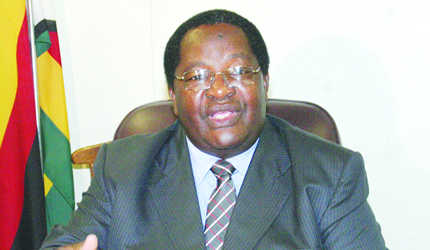Editorial comment: Road safety: Think outside the box

Once again the Ministry of Transport and Infrastructure Development is seriously considering an idea that looks good on paper but will be impossible or cause extreme hardship to implement, and whose efficacy in reducing accidents will be minimal.
New Minister Dr Obert Mpofu has made a good start by lifting the ban on left-hand drive vehicles, especially the large haulage trucks that dominate the local industry.
The ban never really made sense and when the Ministry was forced to compare statistics it found, to no one’s surprise but its own, that the position of the driver did not make any noticeable difference.
What did matter, and what does matter, is the skill of the driver, the sobriety and alertness of the driver, and the total willingness of the driver to obey all traffic regulations and the Highway Code.
The lifting of a ban that never made sense will allow many Zimbabwean companies to continue to import quality used trucks; the biggest beneficiaries of the ban are the growing number of hard-working indigenous transport contractors who have built sound and solid businesses.
But now the Minister seems ready to make an even bigger blunder than the left-hand-drive ban. He wants compulsory vehicle inspection. In the same interview, he noted that the Vehicle Inspection Department is woefully under-equipped even to perform its present wide range of functions.
We cannot see how the VID can ever hope, in the foreseeable future, to be able to inspect all 500 000 or so vehicles in Zimbabwe.
We totally agree that the VID is already overstretched on many more essential duties. We commend the Minister for promising to fight for more resources and to press forward on the commercialisation of the department.
But to prepare it for examining all Zimbabwean vehicles means far more than an upgrade: it means creating a huge department many times the size of the present one.
What needs to be remembered is that most vehicle faults do not cause accidents. They simply stop the vehicle moving.
The faults that are safety risks — tyres, brakes and lights — are susceptible to simple tests, one that the police are quite capable of checking at their many road-blocks.
The almost total end of corruption on police road-blocks means that those in breach of regulations are properly fined and those who obey the law are passed through road blocks with a smile.
The problem of unregistered vehicles is already being solved by the police.
It is now almost impossible to drive anywhere for very long in a vehicle that is not registered, that is not licenced and does not have an extra licence for its radio.
Zinara are adding to the pressure by declining to let unregistered or unlicensed vehicles pass through their toll gates. Both the police and Zinara are capable of continuing these checks without VID assistance.
Of course, if a vehicle is obviously a serious mess the police already have the power to impound it or to order the driver to take it to the VID.
And as Minister Mpofu noted, just coping with the existing work is over-extending the VID. And police do check tyres and, at night, lights at their roadblocks and automatically note if a car has problems stopping when signalled to do so.
So the basic tyres-lights-brakes tests are already being done.
As more resources are found for the VID, and for road safety, there are more important priorities than a national vehicle check.
The VID itself must be able to investigate accidents better and be able to respond to more police requests for vehicle checks.
If the police know they can get a report within a day they will be stricter on what they allow through a road-block, giving us many advantages of a national check without the huge queues that wasting time on safe vehicles would involve.
The police should be equipped with enough breathalysers to start random checking of drivers and more speed cameras to trap more speeding motorists.
Defective vehicles rarely kill: drunk drivers speeding are the real danger.
So we think that steadily improving the VID, building up the already reasonable partnership between police, Zinara and the VID, and carefully considering how best to deploy limited resources will produce most of the safety gains the Minister rightly seeks, without much of the inconvenience and waste a national check would involve.









Comments